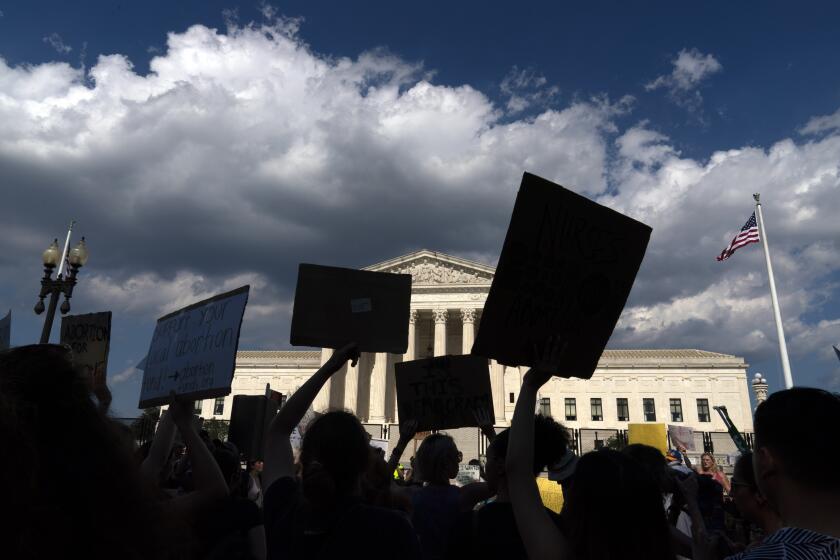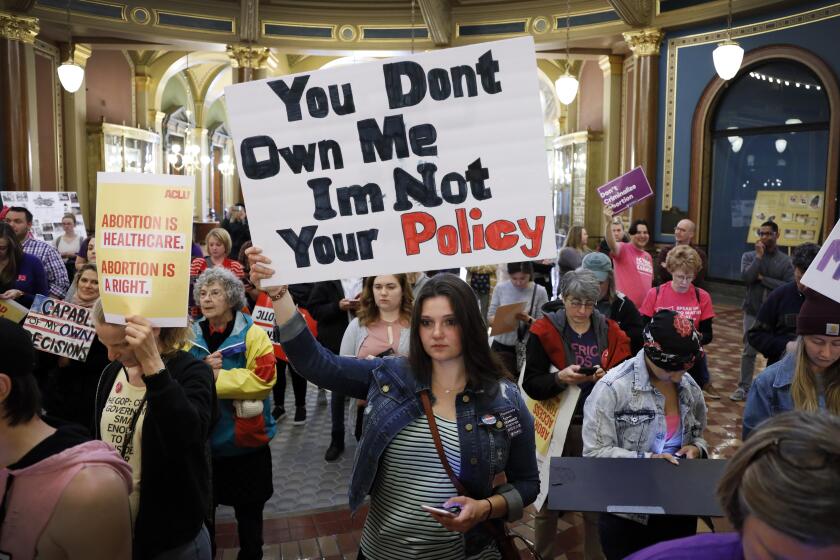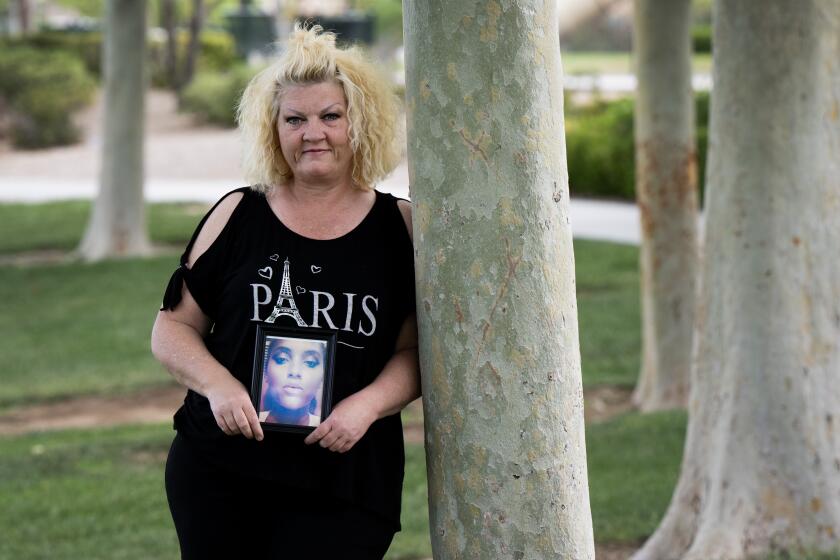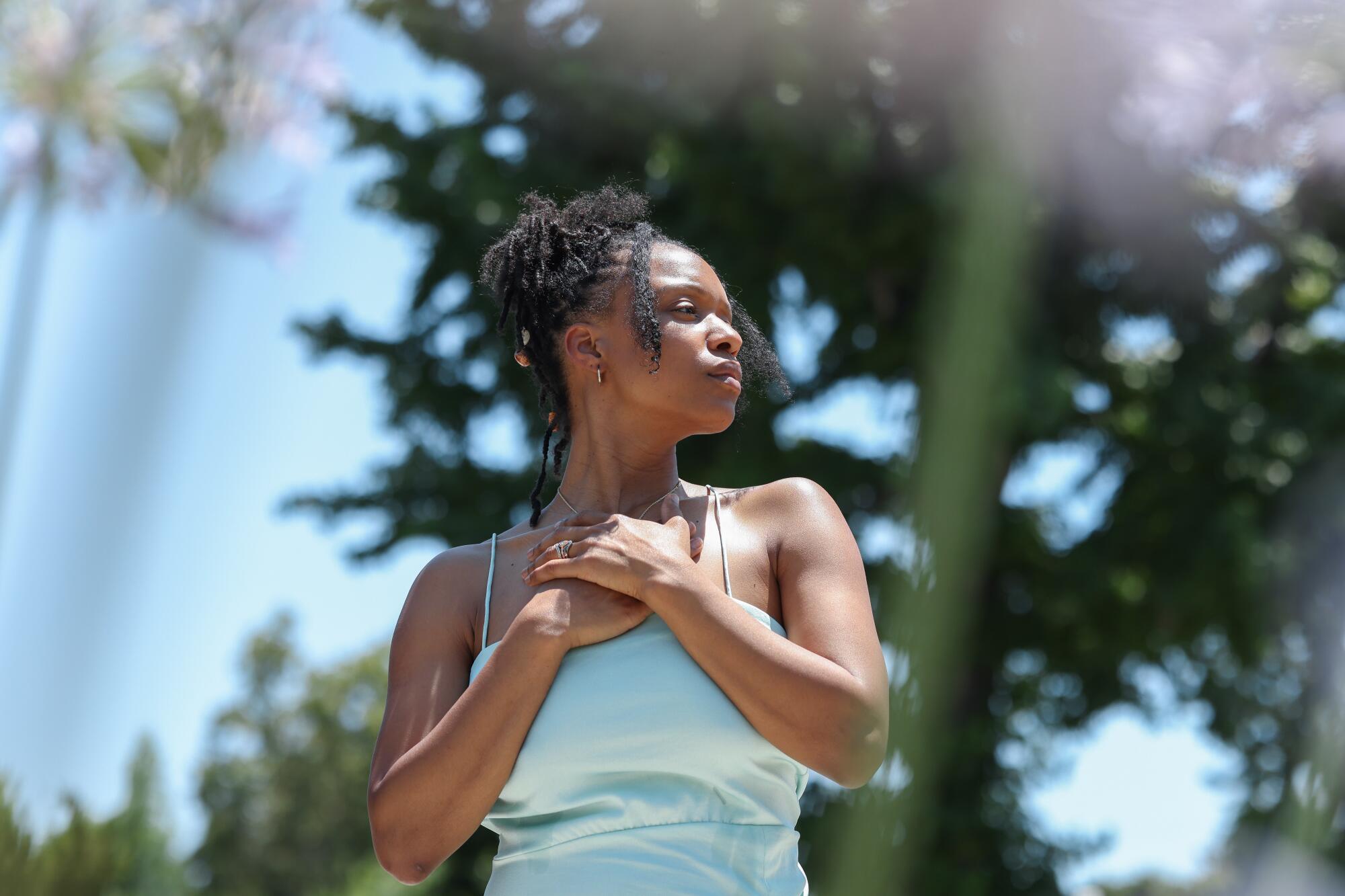
- Share via
The quiet told Michelle Mitchenor something was wrong.
Feet up, belly exposed, the actress was in an Atlanta obstetrician’s office in 2022 for a routine ultrasound as she neared her fifth month of pregnancy.
But the technician wasn’t saying anything as she ran the probe across Mitchenor’s womb, sound waves bouncing off the fetus to create a fuzzy black-and-white image on the monitor.
What’s going on? Mitchenor remembers thinking. Why are you silent?
“Then doctor came in, and immediately was like, ‘Hey, so what we have found is that your baby’s kidneys just did not properly, well, they didn’t properly form,’” Mitchenor told me recently, sharing one of the most painful moments of her life.
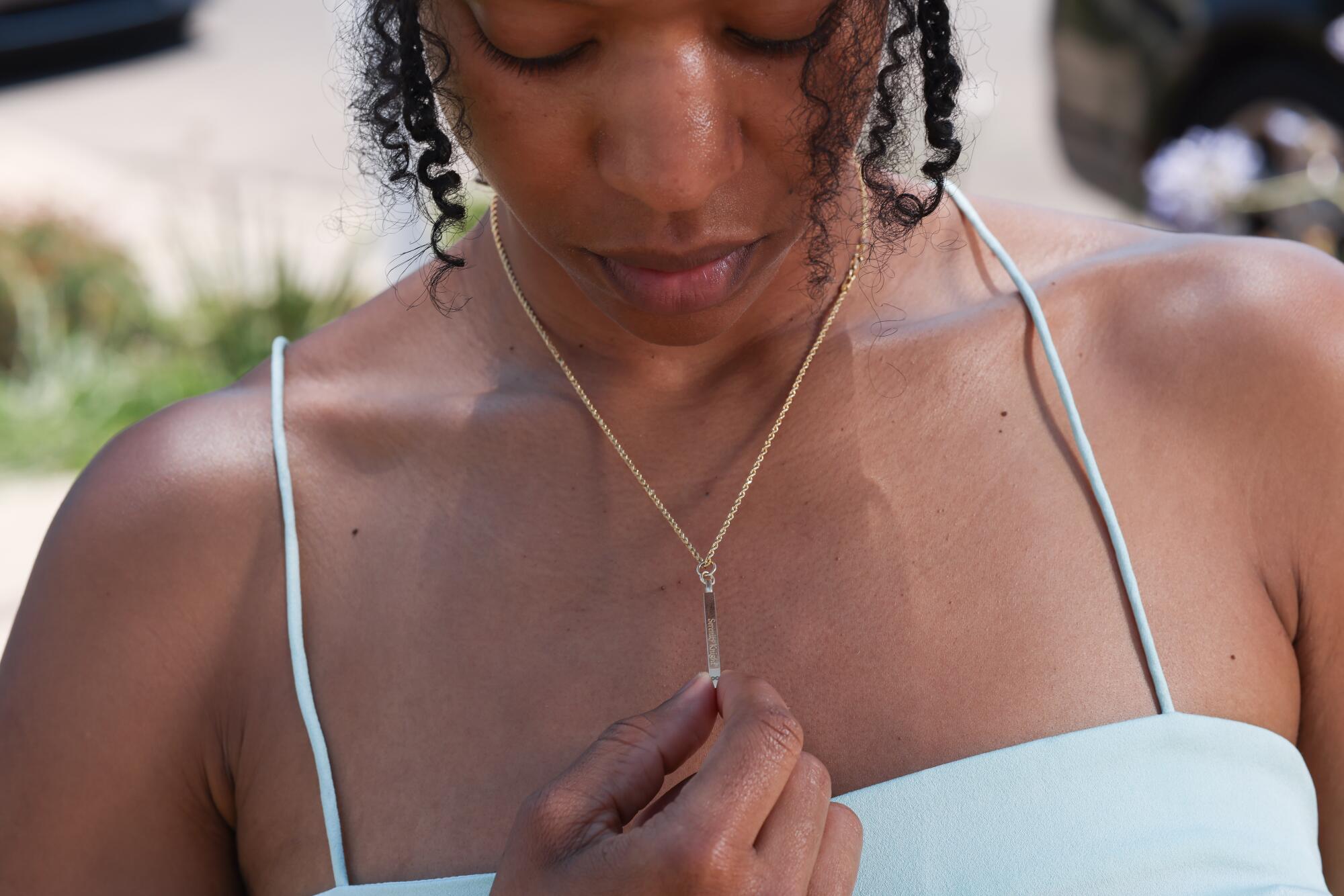
Her unborn child, she was told, had bilateral multicystic dysplastic kidney, or MCDK, leaving her with bunches of cysts where kidneys were supposed to be.
Without functioning kidneys, the fetus was unable to produce urine, which forms the amniotic fluid.
Without amniotic fluid to push in and out of her lungs, they were failing to develop. The walls of Mitchenor’s uterus instead pressed in as the baby struggled to move, to breathe and grow — impeding bones from maturing and smashing down on the umbilical cord that carries nutrients.
The child had less than a 1% chance of being born alive. If she was, she would probably be in immediate multiple organ failure. Bilateral MCDK is almost always fatal.
And carrying the pregnancy could risk Mitchenor’s own life — especially in Georgia, which has one of the nation’s worst maternal mortality rates for Black women.
The doctor brought up abortion, but despite knowing in her mind how bleak the odds were, Mitchenor’s heart held a mother’s hope.
Most U.S. adults, even in states with strict abortion limits or bans, want it to be legal at least through the initial stages of pregnancy, a poll finds.
She had been through a hard pregnancy before, giving birth to a premature daughter. But now that child, Noir, was thriving.
“I didn’t want to just give up,” she said. “It felt like giving up on my child.”
But there was a ticking clock.
Though the Supreme Court had not yet overturned Roe vs. Wade, abortions in Georgia were already fraught with politics, as they now are almost everywhere.
On the books, a woman could obtain an abortion up to 21 weeks and six days. But in 2019, Georgia had tried to institute a ban on the procedure after about six weeks — a so-called heartbeat law that was stayed by courts.
So doctors were cautious. Mitchenor was told if she wanted a later abortion, it would have to be approved by a panel at the hospital that would decide if it was medically warranted. She could not imagine putting such a decision in the hands of strangers.
She also wasn’t ready to make that choice herself.
And so she began to ask questions, seek the experts who might be able to offer her a miracle.
Like so many Hollywood couples, Mitchenor and her husband, actor Mustafa Speaks, met on a production.
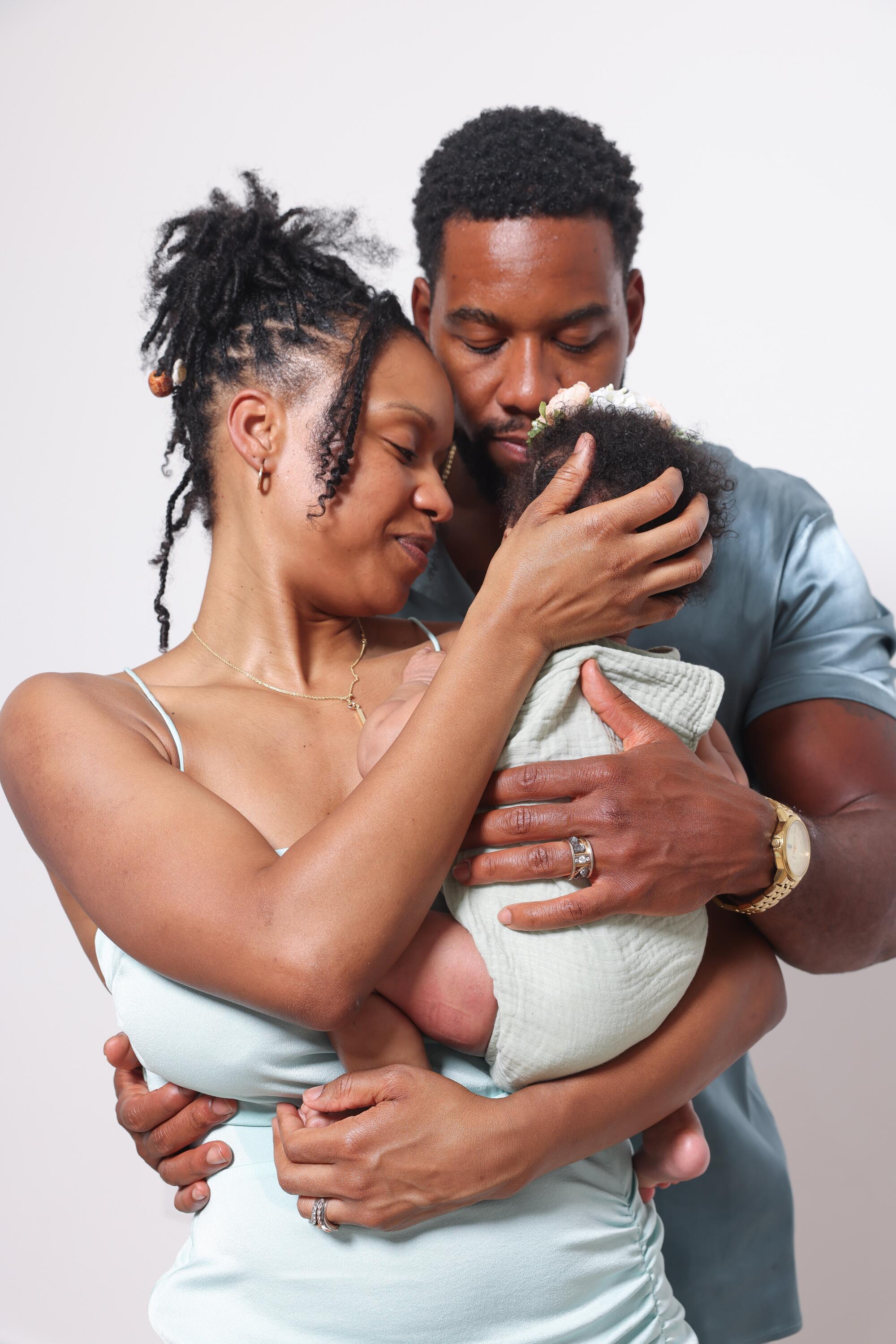
They both were cast in a 2016 pilot for “The Infamous,” a hip-hop crime drama set in 1990s Los Angeles. He played an undercover cop. She was a young rapper. They never crossed paths on set, but he saw an Instagram post of her with “Poetic Justice” braids, he said, and thought he saw something deeper than her obvious beauty. (Both asked me to note that we did this interview before the SAG-AFTRA strike, and its prohibition on members speaking with media.)
He hit her up on social media. She hit him back. They finally met at the wrap party. She says she played it cool when she saw him. He doesn’t remember it that way. He said she hugged him as soon as she saw him on the dance floor.
“She didn’t want to let go of the hug. Like there was a linger,” he recalls.
The House has passed a defense bill that provides a pay raise for service members but strays from traditional military policy with Republican add-ons.
So Speaks did the unthinkable in an age of casual hangouts and hookups. A few weeks in, he told Mitchenor he wanted to date her.
“I was really impressed by him being really clear on what it was he wanted, but also not in a creepy way,” she said.
About eight months later, she invited him on a trip to Uganda. In 2015, Mitchenor was cast in Spike Lee’s “Chi-Raq,” billed as a musical crime comedy drama. With some of her paycheck from that job, she started a nonprofit to bring the arts to kids in underserved communities, including overseas. Now, she was going to do some of that work herself.
Speaks grew up in the Booker T. Washington projects in New Jersey. His grandmother picked cotton in the South.
In the slums of Kampala, he fell in love with another side of Mitchenor, the one that wanted to teach street kids to dance, that didn’t just want to give back, but was making it happen.
“I saw her raw, vulnerable, naked, all of that, and I loved everything I saw,” he said. “Even the stuff that got on my nerves.”
In 2018, they married.
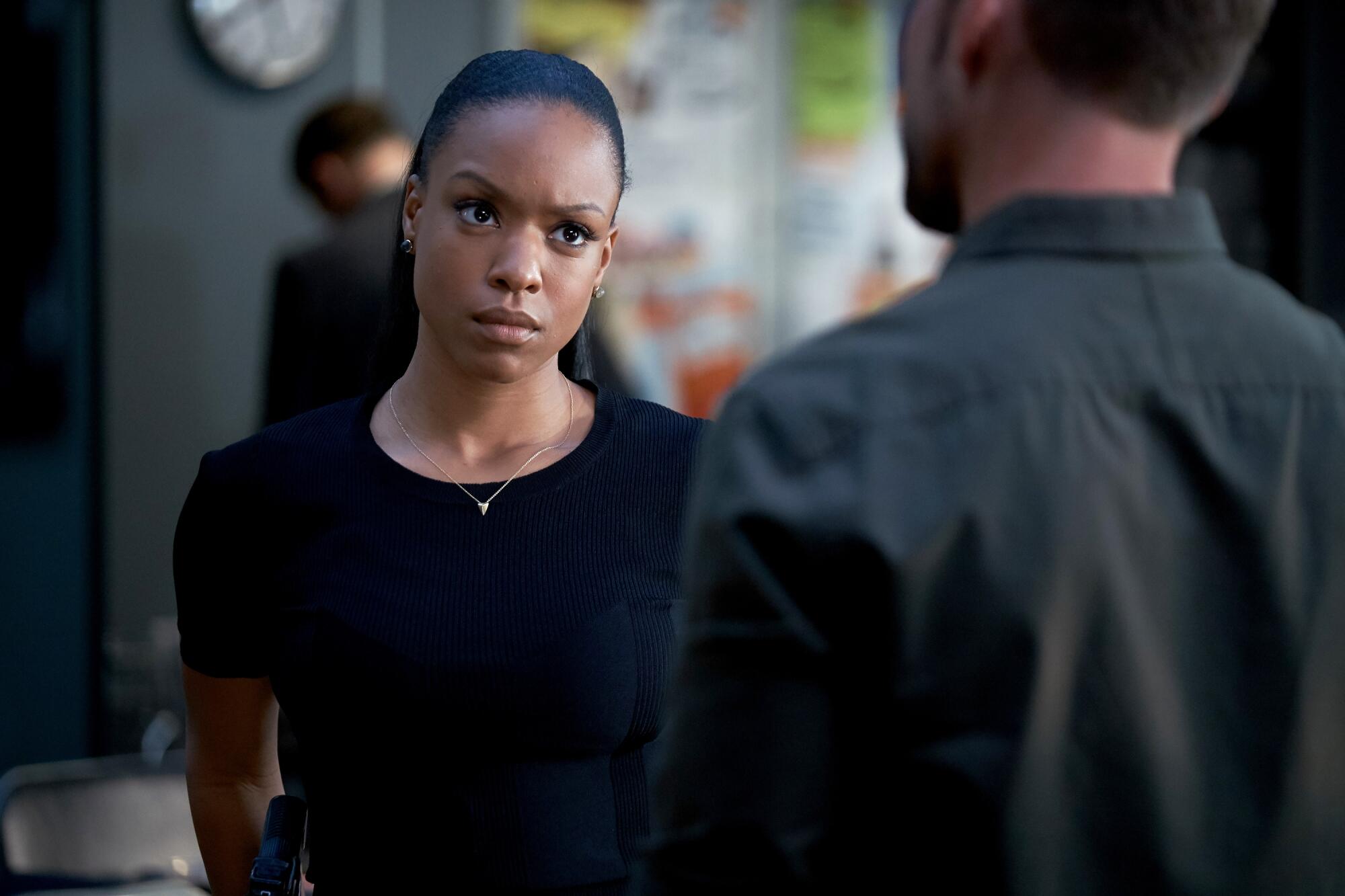
In early 2020, just before the pandemic hit, Mitchenor realized she was pregnant. But only months into that pregnancy, doctors warned that the baby might be born early and suggested she terminate the pregnancy.
Mitchenor was adamant she would do anything to keep the child. She checked into the hospital and stayed on bed rest for a month, cut off from the world as the pandemic shut down access. She didn’t care about loneliness or viruses.
Women who sued Texas after being denied abortions despite serious risks to their health are asking a court to step in and clarify the law and exceptions.
Noir was born premature, “small but mighty,” as the nurses put it. Speaks and Mitchenor spent the summer in the neonatal intensive care unit, until Noir was strong enough to come home.
“Bringing Noir home felt like such that light at the end of the tunnel,” she said. “I am constantly reminded why her middle name is Phoenix, because she rose from the ashes.”
Life was looking good. Speaks booked roles on two shows, the football drama “All American” and a lead on “Joe Pickett,” a western crime drama filming in Canada. Mitchenor landed a role in “First Wives Club.”
Weeks before leaving for that set, when Noir was about a year and a half, Mitchenor found out she was pregnant, unexpected but welcome.
Then came the ultrasound at 18 weeks, and their world turned upside down.
Eighteen weeks turned into 19, then into the twenties as Mitchenor searched for answers, scouring specialists across the country.
“I [needed] time,” she said. “I’m not rushing anything with my body, my decision. I just [had] to figure it out. It was just too overwhelming for me.”
None of the answers were ones she wanted to hear.
There is no cure for bilateral MCDK. No cutting-edge surgery, no experimental genetic intervention.
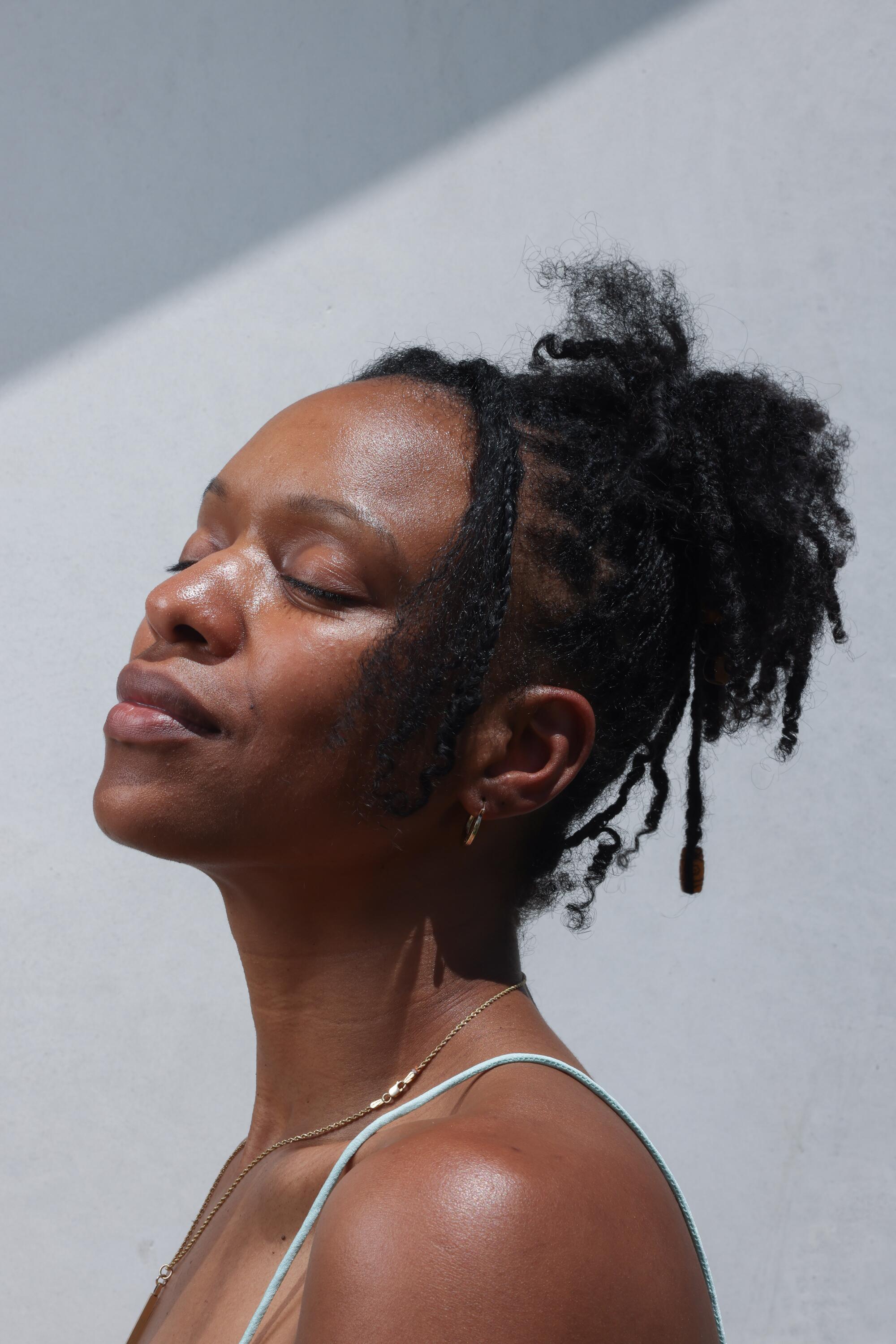
It was becoming real to her that this baby, if she lived to birth, would not have working kidneys and would have severely damaged lungs at best. She began to understand that no miracle was coming.
On a work trip back to California, Speaks, who has two older children as well as Noir, went to the beach seeking “some kind of peace and solace and guidance,” he said.
Lutheran theologian Reinhold Niebuhr’s “Serenity Prayer,” believed to have been written to address the horrors of World War II, came to his mind.
God grant me the serenity to accept the things I cannot change, courage to change the things I can, and the wisdom to know the difference.
When he told Mitchenor that these words filled his spirit as he thought of their situation, she decided to name the child she carried Serenity.
And she began to ask questions of herself rather than her doctors.
What obligation do I have to survive for Noir? What obligation do I have to survive for my husband?
What would Serenity suffer, if she was born alive? What was she suffering in the womb?
The suspension of a safe and effective medication for chemical abortions may or may not withstand legal challenges. But its real purpose, to create fear and confusion, has been accomplished.
“I’m already a mom, I already have a child,” she told me she thought in the midst of this unimaginable hurt.
“So am I putting myself potentially in a position where the child that I do have could maybe not have a mom? Am I putting myself potentially in a position where my husband could be without a spouse raising the baby?”
She began to see that her accountability as a mother demanded that she not hope against reality, but face it.
She needed to protect her unborn child from even her own desires, accept what she could not change and release this soul from suffering, she said.
“I would have never thought that I would have to make decisions on if my child should live or not,” she told me.
But she began to believe, she said, that going forward at all costs wasn’t the only path that a good and kind mother could take. She did not have to choose trauma for herself or this unborn child — sometimes the most untainted choices are the ones that few understand, but that bring stillness to our hearts.
“I can make a decision to say, ‘You know what, I’m going to release this light inside of me and trust that this is the best decision for my child and for my family. And I have the autonomy to do that.’”
She decided to have an abortion “and trust that [Serenity’s] spirit will return.”
Mitchenor is clear that she is speaking only of her personal situation. Another woman may have decided to carry the pregnancy. Some would have terminated the day they found out. About 1% of abortions, 5,200 a year, occur after 21 weeks, and many of those involve a fetus with severe fetal anomalies — which, despite our genetic testing and ultrasounds, sometimes can’t be diagnosed early on.
With this private and personal decision, she told me, came a sorrowful peace.
At 27 weeks, she and Speaks traveled to another state where Mitchenor could have an induced abortion. Both held Serenity after the procedure to say their “earthly goodbyes.”
“We had as much time as we wanted to just hold her and talk to her and I wanted that closure,” she told me.
But even as they mourned, a different kind of miracle happened than the one they had prayed for.
Six weeks later, Mitchenor found out she was pregnant.
She and Speaks felt certain this was Serenity’s soul returning to them.
After a trouble-free pregnancy, Mitchenor gave birth at home earlier this year to Legacy, a baby girl who was happily breastfeeding with a flowered headband in her curls on the day I met her.
Jill Harrison’s daughter Ciara was murdered in 2019. Now Harrison is trying to help the man who killed her child, fighting for Gov. Gavin Newsom’s plan to change San Quentin.
Why is Mitchenor sharing this story, one that will surely bring out the haters, those who will never even try to understand her decision?
“You know, it’s my redemptive story. It’s my story of strength and overcoming and making hard decisions and being able to make those hard decisions as a mom,” she told me. “That was like a defining point in me and for me.”
If you ask her, she will tell you Legacy is her third child — Serenity will always be her second, her angel baby.
But even with all the support she had, she felt alone and isolated — drowning in heartache, anger, shame, you name it. She wants other women, especially now as abortion rights are rolled back across the country, to know their choices are valid, no matter how difficult.
In this post Roe vs. Wade world, we are quickly becoming used to the idea that abortions have restrictions. As we fight to hold on to any rights, we are making compromises, most often around abortions that occur later.
With some states seeking to ban almost all abortions, even before a woman realizes she is pregnant, it sounds reasonable to outlaw one that takes place at six months. Reproductive choice is shrinking, even in the minds of its defenders.
But Mitchenor wants us to understand that “none of us are exempt from tragedy.”
And the choices we make in the face of that tragedy have to be our own, made in our own time and space.
Especially when they are the choices that define us, the kind only our shrouded hearts can understand.
More to Read
Sign up for Essential California
The most important California stories and recommendations in your inbox every morning.
You may occasionally receive promotional content from the Los Angeles Times.
